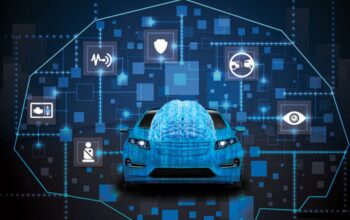[ad_1]
Automotive industry is booming with new innovations and advancements each day. From self-driving cars to electric vehicles, there has been a significant shift in the way we commute. In this article, we will explore the various aspects of the automotive industry and how it affects our lives.
One of the biggest advancements in the automotive industry is the rise of electric vehicles (EVs). With increasing concerns about climate change and pollution, many governments and manufacturers have shifted their focus towards producing electric vehicles. EVs offer numerous benefits, including reduced carbon emissions, quieter operation, and lower running costs. The adoption of electric vehicles is on the rise, with more and more people opting for this eco-friendly mode of transportation.
Another area of focus in the automotive industry is autonomous vehicles. Self-driving cars have the potential to revolutionize the way we commute. They promise increased safety, reduced traffic congestion, and improved fuel efficiency. Companies like Tesla, Google, and Uber are investing heavily in developing autonomous technology. While fully autonomous vehicles are not yet available for mass adoption, the future looks promising for this technology.
Automotive industry is not just about cars; it also includes trucks, motorcycles, and other modes of transportation. Trucks play a vital role in logistics and transportation, ensuring the smooth movement of goods across long distances. With advancements in technology, trucks are becoming more fuel-efficient and safer. Moreover, electric trucks are also being developed, further reducing emissions associated with transportation.
Motorcycles are another important segment of the automotive industry. They provide an efficient and affordable mode of transportation, particularly in crowded cities with heavy traffic. Motorcycles offer the flexibility to maneuver through traffic and reach destinations faster. With advancements in electric motorcycle technology, we can expect to see more electric motorcycles on the roads, contributing to a greener future.
Automotive industry also encompasses innovations in safety and connectivity. Car manufacturers are incorporating cutting-edge safety features such as adaptive cruise control, lane-keeping assist, and automatic emergency braking. These features not only enhance the safety of the driver and passengers but also reduce the likelihood of accidents. Additionally, connectivity features like Bluetooth, GPS navigation, and advanced infotainment systems provide a seamless and enjoyable driving experience.
The automotive industry also has a significant impact on the economy. It creates job opportunities for millions of people worldwide. From manufacturing to sales, servicing, and support, the automotive industry employs a vast workforce. Additionally, it generates revenue through sales, taxation, and licensing. The industry also supports related sectors such as fuel, insurance, and aftermarket services.
However, the automotive industry also faces challenges. One of the major challenges is the environmental impact of vehicles. Despite the advancements in electric vehicles, the majority of the vehicles on the road still run on fossil fuels, contributing to air pollution and climate change. Governments and manufacturers need to work together to promote sustainable transportation options and reduce the carbon footprint of vehicles.
In conclusion, the automotive industry is continuously evolving and shaping the way we commute. Electric vehicles, autonomous technology, safety innovations, and connectivity features are transforming the industry. The industry plays a crucial role in the economy and provides employment opportunities. However, there is a need for greater emphasis on sustainability and reducing the environmental impact of vehicles. By embracing emerging technologies and promoting green transportation, the automotive industry can pave the way for a cleaner and safer future.
[ad_2]






